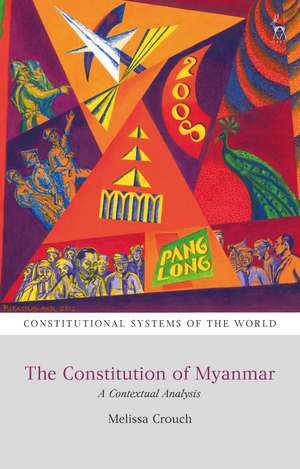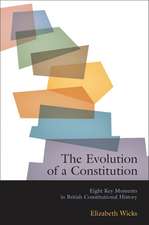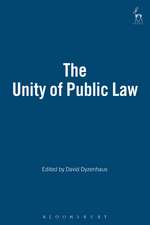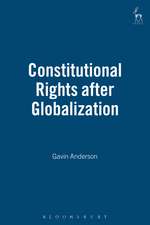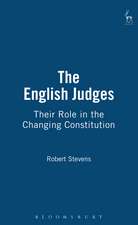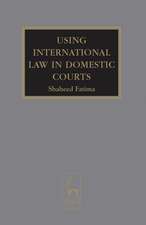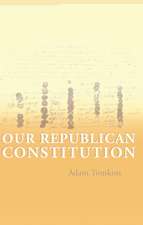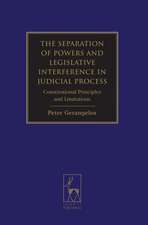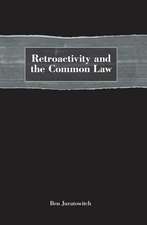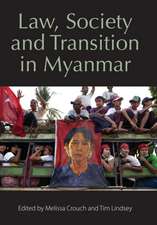The Constitution of Myanmar: A Contextual Analysis: Constitutional Systems of the World
Autor Dr Melissa Crouchen Limba Engleză Paperback – 6 mai 2020
| Toate formatele și edițiile | Preț | Express |
|---|---|---|
| Paperback (1) | 152.82 lei 6-8 săpt. | |
| Bloomsbury Publishing – 6 mai 2020 | 152.82 lei 6-8 săpt. | |
| Hardback (1) | 498.33 lei 3-5 săpt. | |
| Bloomsbury Publishing – 4 sep 2019 | 498.33 lei 3-5 săpt. |
Din seria Constitutional Systems of the World
- 13%
 Preț: 174.07 lei
Preț: 174.07 lei - 38%
 Preț: 134.64 lei
Preț: 134.64 lei - 23%
 Preț: 197.68 lei
Preț: 197.68 lei - 14%
 Preț: 147.59 lei
Preț: 147.59 lei - 34%
 Preț: 509.52 lei
Preț: 509.52 lei - 28%
 Preț: 374.41 lei
Preț: 374.41 lei - 40%
 Preț: 466.81 lei
Preț: 466.81 lei - 22%
 Preț: 263.72 lei
Preț: 263.72 lei - 23%
 Preț: 185.93 lei
Preț: 185.93 lei - 19%
 Preț: 166.82 lei
Preț: 166.82 lei - 21%
 Preț: 218.26 lei
Preț: 218.26 lei - 23%
 Preț: 178.47 lei
Preț: 178.47 lei - 19%
 Preț: 303.62 lei
Preț: 303.62 lei - 18%
 Preț: 300.14 lei
Preț: 300.14 lei - 30%
 Preț: 510.03 lei
Preț: 510.03 lei - 14%
 Preț: 192.30 lei
Preț: 192.30 lei - 18%
 Preț: 304.66 lei
Preț: 304.66 lei - 23%
 Preț: 178.02 lei
Preț: 178.02 lei - 18%
 Preț: 225.31 lei
Preț: 225.31 lei - 23%
 Preț: 197.14 lei
Preț: 197.14 lei - 18%
 Preț: 180.44 lei
Preț: 180.44 lei - 18%
 Preț: 179.98 lei
Preț: 179.98 lei - 18%
 Preț: 186.35 lei
Preț: 186.35 lei - 14%
 Preț: 179.00 lei
Preț: 179.00 lei - 16%
 Preț: 218.47 lei
Preț: 218.47 lei - 19%
 Preț: 184.14 lei
Preț: 184.14 lei - 18%
 Preț: 297.58 lei
Preț: 297.58 lei - 16%
 Preț: 218.00 lei
Preț: 218.00 lei - 18%
 Preț: 232.54 lei
Preț: 232.54 lei - 23%
 Preț: 171.85 lei
Preț: 171.85 lei - 18%
 Preț: 225.49 lei
Preț: 225.49 lei - 14%
 Preț: 185.93 lei
Preț: 185.93 lei - 13%
 Preț: 230.79 lei
Preț: 230.79 lei - 13%
 Preț: 186.10 lei
Preț: 186.10 lei - 19%
 Preț: 179.10 lei
Preț: 179.10 lei -
 Preț: 223.20 lei
Preț: 223.20 lei - 18%
 Preț: 180.44 lei
Preț: 180.44 lei -
 Preț: 217.09 lei
Preț: 217.09 lei - 18%
 Preț: 186.35 lei
Preț: 186.35 lei
Preț: 152.82 lei
Preț vechi: 198.32 lei
-23% Nou
Puncte Express: 229
Preț estimativ în valută:
29.24€ • 30.35$ • 24.44£
29.24€ • 30.35$ • 24.44£
Carte tipărită la comandă
Livrare economică 15-29 martie
Preluare comenzi: 021 569.72.76
Specificații
ISBN-13: 9781509933143
ISBN-10: 150993314X
Pagini: 276
Dimensiuni: 138 x 216 x 22 mm
Greutate: 0.32 kg
Editura: Bloomsbury Publishing
Colecția Hart Publishing
Seria Constitutional Systems of the World
Locul publicării:London, United Kingdom
ISBN-10: 150993314X
Pagini: 276
Dimensiuni: 138 x 216 x 22 mm
Greutate: 0.32 kg
Editura: Bloomsbury Publishing
Colecția Hart Publishing
Seria Constitutional Systems of the World
Locul publicării:London, United Kingdom
Caracteristici
Gives an accessible account of the Constitution in its broader political, social and historical context
Notă biografică
Melissa Crouch is Associate Professor in Law at the University of New South Wales.
Cuprins
1. Introducing Myanmar's 2008 Constitution I. Constitutional Context II. Constitutional Codification and the Constitutional Tribunal III. The Constitution in a Military-state IV. Organisation of the Book 2. The Origins and Content of the 2008 Constitution: An Overview I. Parliamentary Democracy and the 1947 Constitution II. Ne Win's 'Burmese' Socialism and the 1974 Constitution III. The Military and Constitution-making: 1990S-2000S IV. The Preamble and the Basic Principles of the Constitution V. Conclusion 3. The Military: The Pre-eminence of the Tatmadaw in Governance I. The Three Main National Causes II. The Commander-in-Chief III. Forces Affiliated with the Tatmadaw IV. The National Defence and Security Council V. States of Emergency VI. Tatmadaw Watchmen in the Legislature VII. Courts Martial VIII. Conclusion 4. The Electoral System and Limits on Political Participation I. Political Parties and Candidates II. The Right to Vote and Run for Office III. The Proposal for Proportional Representation IV. The Administration of Elections V. The Resolution of Electoral Disputes VI. Complaints Against Legislators: The Right to Recall VII. Conclusion 5. The Legislature I. The Union Legislature: A Tricameral System II. The Loyalties, Privileges and Responsibilities of Legislators III. The Scope of Legislative Power IV. Conclusion 6. The Executive I. The President as Head of the Union II. The Centralising Mandate of the Union Government III. Constitutional Commitments to a Market Economy IV. Aung San Suu Kyi and the Office of the State Counsellor V. The Administration of Union Territories VI. Conclusion 7. Subnational Governance, Federalism and Ethnic Recognition I. Territorial Representation: States and Regions II. Sub-national Legislative Representation of National Races III. Special Governance Arrangements for Six Areas IV. Conclusion 8. The Judiciary as an Administrative InstitutionI. The Union Supreme Court II. Sub-national Courts in a Unitary Judicial System III. The Constitutional Tribunal IV. Conclusion 9. Constitutional Duties and the Contingency of Rights I. The Status of International Law and Conventions II. The Pre-eminence of Duties III. Constitutional Writs in the Supreme CourtIV. The National Human Rights Commission V. Conclusion 10. The Peace Process and Constitutional Change I. The Peace Process: Normalising Debates on Federalism II. The National Ceasefire Agreement: Peace in the Military-state III. The 37 Principles as Constitutional Foundation 6IV. The Process and Procedure of Constitutional Amendment V. Proposals for Constitutional Reform VI. Conclusion 11. Conclusion I. The Centrality of the Constitution to the Military-state II. Implications for Comparative Constitutional Inquiry
Recenzii
The Constitution of Myanmar provides a meticulous positive analysis of constitutional praxis in contemporary Myanmar and is an essential new source on authoritarian constitutionalism.
Dr Crouch's book is a remarkable exploration of the emerging constitutional order of Myanmar - deeply knowledgeable about Myanmar's constitutional history, conscious of the profound divisions within Myanmar and the consequent array of demands made upon that order, and acute in its interpretations of a constitution undergoing rapid change. This book will be of great interest to those wishing to understand law and government in Myanmar, but also those interested generally in transitions from military rule, the governance of ethnically diverse societies, and the transition from colonial to post-colonial political orders.
This is a welcome and timely new contribution to the excellent Hart series. It offers a well-informed analysis of the current constitutional arrangements in Myanmar, at a time when proposals for change are once again under discussion. The book will be an invaluable resource for those interested in Myanmar, Asian constitutional systems and multi-level government in times of transition.
Myanmar's Constitution was not expected to matter much when it was adopted in 2008, but Professor Crouch demonstrates that it has produced a vigorous set of debates about the country's trajectory. This is the definitive English-language volume on Myanmar's Constitution and essential for anyone following the country.
Dr Crouch's book is a remarkable exploration of the emerging constitutional order of Myanmar - deeply knowledgeable about Myanmar's constitutional history, conscious of the profound divisions within Myanmar and the consequent array of demands made upon that order, and acute in its interpretations of a constitution undergoing rapid change. This book will be of great interest to those wishing to understand law and government in Myanmar, but also those interested generally in transitions from military rule, the governance of ethnically diverse societies, and the transition from colonial to post-colonial political orders.
This is a welcome and timely new contribution to the excellent Hart series. It offers a well-informed analysis of the current constitutional arrangements in Myanmar, at a time when proposals for change are once again under discussion. The book will be an invaluable resource for those interested in Myanmar, Asian constitutional systems and multi-level government in times of transition.
Myanmar's Constitution was not expected to matter much when it was adopted in 2008, but Professor Crouch demonstrates that it has produced a vigorous set of debates about the country's trajectory. This is the definitive English-language volume on Myanmar's Constitution and essential for anyone following the country.
